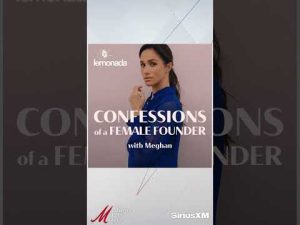In recent discussions surrounding the contentious issue of abortion, the conversation has sparked debate among citizens, particularly those navigating the political landscape as they align with either major party. Some individuals proudly identify as split-ticket voters, choosing to support candidates from both the Democratic and Republican parties based on individual policies rather than party lines. As one such voter shared during a recent conversation, the complexity of opinions on issues like abortion often leads to internal conflict when considering a vote for Republican candidates who staunchly advocate for a pro-life agenda.
The conversation turned to the historical context of abortion, particularly highlighting Margaret Sanger, who founded Planned Parenthood. It was noted that abortion has existed long before any contemporary discussions surrounding its morality. The pro-life stance emphasized that if human life begins at conception, then the act of abortion must be viewed as the termination of a human life. This led to an exploration of whether a political party’s unwavering dedication to the pro-life stance is worth the potential division it causes within voters, especially those who hold differing views on such a personal issue.
A key point of contention arose regarding the necessity of understanding the myriad circumstances surrounding conception. For instance, it’s said that less than 1% of abortions in the U.S. occur due to cases of rape or incest. Many feel these exceptions should be acknowledged; however, another counterpoint was raised: if human life begins at conception, every abortion thereafter constitutes a moral failure of society. The dialogue provoked thought on whether maintaining the legality of abortion for those circumstances might overshadow the pervasive lack of support for single mothers or families facing challenging situations, thus wide-ranging impacts must be considered.
The conversation took an even more intense turn when probing whether a human’s rights are stripped away based on how they were conceived. Citing examples from the audience, it was pointed out that one cannot determine the circumstances surrounding a child’s conception merely by looking at them during an ultrasound. This proposition led to a discussion on whether moral standards should be upheld universally, regardless of the circumstances of birth. It was offered that those who believe in universal human rights should stand up against the idea that a child’s worth is determined by their conception.
Interestingly, opposition to the pro-choice narrative often emphasizes the notion that moral dilemmas shouldn’t lead to subjective definitions of human life. Questions arose regarding the implications of motherhood and how these views might extend to children born with disabilities or those who may not fulfill a parent’s expectations. This deeper dive into moral philosophy compared the idea of distinguishing between different stages of life and why a society that protects the vulnerable should equally extend those protections to unborn children.
Ultimately, the conversation about abortion encapsulates far more than mere political alignment; it probes fundamental questions about human life, rights, and moral obligations. The complexity of individual circumstances speaks to the heart of these discussions, necessitating thoughtfulness on all sides. Many conservative voices argue robustly for pro-life ideals, yet those on the other side of the aisle passionately defend personal choice, each believing wholeheartedly in their stance. As both sides engage, the exploration of these difficult conversations becomes vital in understand and perhaps bridging the divide in such a pivotal issue within American political discourse.







